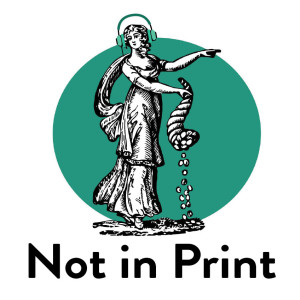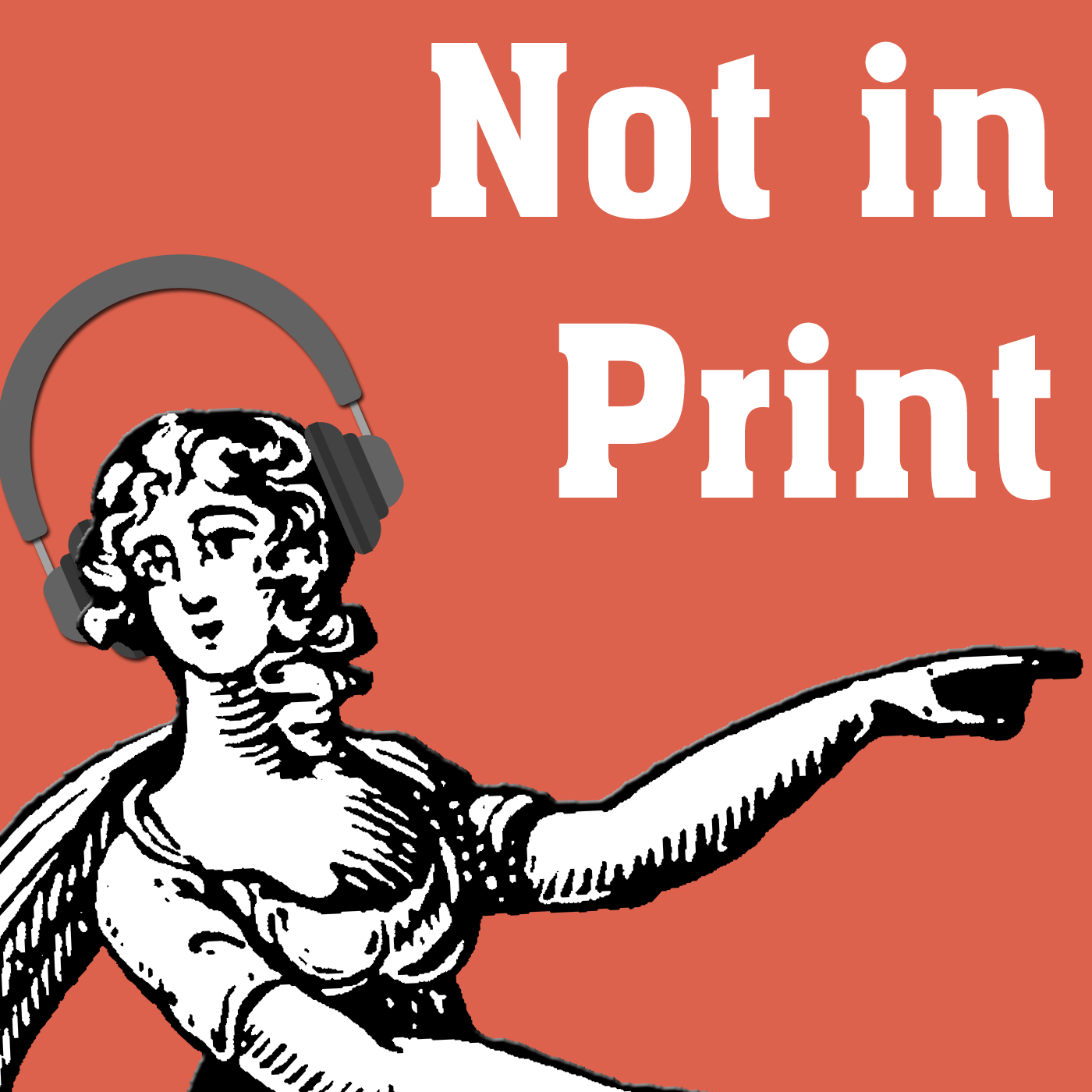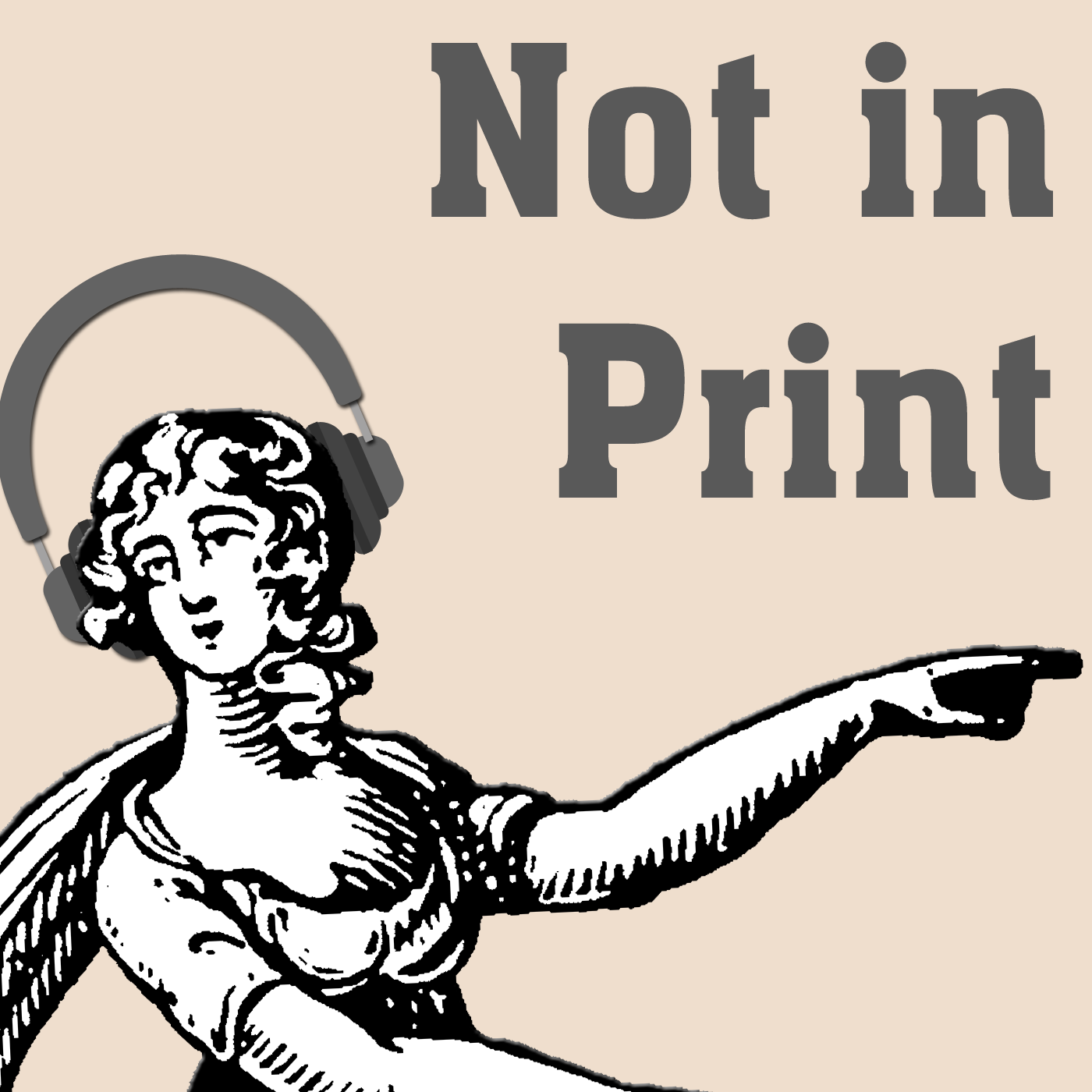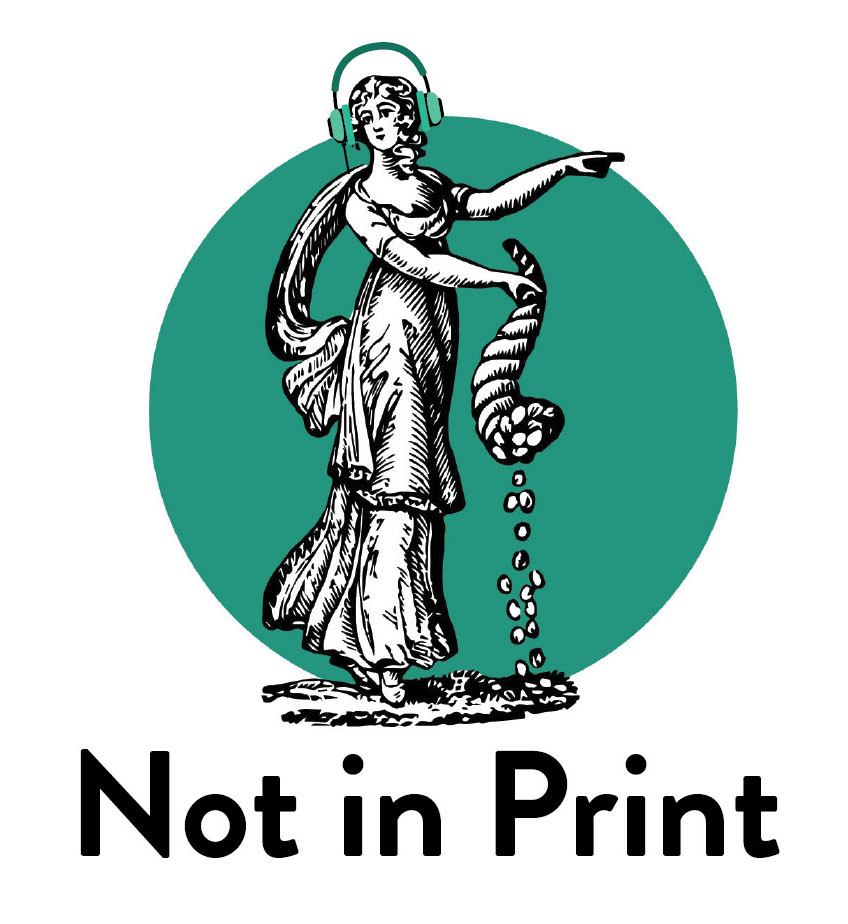
Episodes

Wednesday Jun 08, 2022
’Australia in 50 Plays’: In conversation with Julian Meyrick
Wednesday Jun 08, 2022
Wednesday Jun 08, 2022
In this episode of Not in Print Caitlin speaks with Julian Meyrick.
Julian Meyrick is Professor of Creative Industries at Griffith University and an Honorary Fellow at Deakin University. He has directed award-winning productions at Melbourne Theatre Company, Griffin, Sydney Theatre Company, Melbourne Workers Theatre and Kick House Theatre and was Associate Director and Literary Advisor at Melbourne Theatre Company until 2007.
In this podcast Julian discusses his most recent book, 'Australia in 50 Plays', published by Currency Press and launched at the inaugural Australian Playwrights’ Festival in March this year.
Grab a copy of the book here: currency.com.au/books/history-and-criticism/australia-in-50-plays/
~~
Music by Grace Turner

Tuesday May 04, 2021
Tuesday May 04, 2021
"Five years at law school,
eleven years of practice,
I have always believed.
Now I need to know that I was not mistaken."
---
In this episode we spoke with playwright Suzie Miller about her award winning play, Prima Facie.
Winner of the 2018 Griffin Award, Prima Facie is an indictment of the Australian legal system’s failure to provide reliable pathways to justice for women in rape, sexual assault or harassment cases. It’s a work of fiction, but one that could have been ripped from the headlines of any paper, any day of the week, so common you could cry.
Tessa is a criminal lawyer at the top of her game who knows the law permits no room for emotion.
To win, you just need to believe in the rules. And Tessa loves to win, even when defending clients accused of sexual assault.
Her court-ordained duty trumps her feminism. But when she finds herself on the other side of the bar, Tessa is forced into the shadows of doubt she’s so ruthlessly cast over other women.
Turning Sydney’s courts of law into a different kind of stage, Suzie Miller‘s (Sunset Strip, Caress/Ache) taut, rapid-fire and gripping one-woman show exposes the shortcomings of a patriarchal justice system where it’s her word against his.
***
Prima Facie will be showing again at Griffin Theatre, 23 June - 10 July 2021. Tickets here: https://tinyurl.com/4j8kd74x
Grab copies of the script here: https://tinyurl.com/5zdjzr2y
***
Music by Grace Turner.
Thank you to Sarah Easterman for reading the excerpts from the play for this episode.

Tuesday Jul 21, 2015
Tuesday Jul 21, 2015

Saturday Mar 14, 2015
Saturday Mar 14, 2015
Alex Buzo was born in Sydney and educated at the University of NSW. In the late 1960s his early plays Norm and Ahmed, Rooted and The Front Room Boys pioneered a revival of Australian theatre. Macquarie and other historical plays such as Big River and Pacific Union helped to popularise the themes of our individual and national maturity. Buzo's books Tautology, The Longest Game, The Young Person's Guide to the Theatre and A Dictionary of the Almost Obvious confirm his reputation as an important recorder of the modern Australian idiom.

Saturday Mar 14, 2015
Wary Asians on a Theme: Dramatising in the Near North l Australian theatre in Asia
Saturday Mar 14, 2015
Saturday Mar 14, 2015
Toby Leon reads an article Alex Buzo wrote for Quadrant Magazine in 2004. It’s called ‘Wary Asians on a Theme: Dramatising in the Near North’ and unpacks the cultural complexities that Buzo encountered when presenting his work in Asia - from India, to Malaysia and Indonesia too - seeing the reactions from audiences, reading local critics’ appraisals of his plays, listening to the directors’ choices about his characters motivation and truth, then trying to make those same choices himself when he directed his play Pacific Union in Jakarta. And of course the piece is brimming with Alex’s insight and humour, both just as sharp as each other.
--
Alex Buzo was born in Sydney and educated at the University of NSW. In the late 1960s his early plays Norm and Ahmed, Rooted and The Front Room Boys pioneered a revival of Australian theatre.Macquarie and other historical plays such as Big River and Pacific Union helped to popularise the themes of our individual and national maturity. Buzo's books Tautology, The Longest Game, The Young Person's Guide to the Theatre and A Dictionary of the Almost Obvious confirm his reputation as an important recorder of the modern Australian idiom.

Sunday Feb 22, 2015
Sunday Feb 22, 2015
Each night two hoods ride a train to a wrecking yard on the outskirts of the city. Here, in this cemetery of stories, they are storytellers with the power to fast forward, pause and rewind. Tonight they tell the story of three kids left in a car. Exploring issues of poverty and family violence, Hoods is a suburban tale of survival and solidarity against the odds.
--
Angela Betzien is a multi-award winning writer and a founding member of independent theatre company Real TV; her work has toured widely across Australia and internationally. She is currently the Patrick White Fellow at Sydney Theatre Company and developing new plays for them, as well as Melbourne Theatre Company and Belvoir.
Angela’s play Children of the Black Skirt toured Australian schools for three years and won the 2005 Drama Victoria Award for Best Performance by a Theatre Company for Secondary Schools. Another work, War Crimes, won the 2012 Kit Denton Fellowship and the QLD Literary Award for Playwriting; it was also nominated for a NSW Premier’s Literary Award in 2012.

Wednesday Jan 21, 2015
Stories of Love and Hate: When do they collide? l Headphone verbatim theatre
Wednesday Jan 21, 2015
Wednesday Jan 21, 2015
Roslyn Oades is well known for her pioneering work in the field of headphone verbatim and audio-driven performance, taking real life and fusing it into storytelling. As an artist, Roslyn harbors a long-term fascination for vocal patterns and moonlights as a well-known cartoon character voice performer—including major roles on the animated TV series Tracey McBean, Bananas in Pyjamas and Zigby. She has also worked extensively as a TV actor and puppeteer.

Wednesday Jan 21, 2015
On Dramaturgy and Emerging Artists l Advice for up and coming playwrights
Wednesday Jan 21, 2015
Wednesday Jan 21, 2015
Roslyn Oades is well known for her pioneering work in the field of headphone verbatim and audio-driven performance, taking real life and fusing it into storytelling. As an artist, Roslyn harbors a long-term fascination for vocal patterns and moonlights as a well-known cartoon character voice performer—including major roles on the animated TV series Tracey McBean, Bananas in Pyjamas and Zigby. She has also worked extensively as a TV actor and puppeteer.

Sunday Dec 14, 2014
Sunday Dec 14, 2014
Linda Jaivin is a writer, translator and cultural commentator. She is the author of eleven books and a frequent contributor to respected publications, including The Monthly. Her first novel was the comic-erotic international best-seller Eat Me. Her seventh and most recent novel is The Empress Lover.
Her non-fiction includes Confessions of an S&M Virgin and the China memoir The Monkey and the Dragon as well as Beijing, which has just been published as part of Reaktion Press’s Cityscopes series. She is also a literary translator from Chinese, specialising in film subtitles, and an editorial consultant to the ANU's Australian Centre on China in the World.

Thursday Oct 16, 2014
The Secret River: Our history is contested space l Classic Australian theatre
Thursday Oct 16, 2014
Thursday Oct 16, 2014
William Thornhill: Born into brutal poverty in London in the late 18th century and transported to the Colony of New South Wales for theft in 1806. After earning his freedom he brings his wife and children to the Hawkesbury River where they ‘take up’ 100 acres of land, only to discover that it’s not theirs to take.
--
Andrew Bovell writes for the stage, television and film. In 1992 he wrote the original screenplay for Strictly Ballroom and in 2001 he went on to adapt his stage play Speaking in Tongues in to the feature film, Lantana. The film premiered at the Sydney Film Festival in 2001 and went on to screen at numerous international film festivals winning many awards. Most recently Andrew adapted John Le Carre’s novel A Most Wanted Man.
His theatre credits include Scenes from a Separation (with Hannie Rayson); Speaking in Tongues, which premiered at Griffin Theatre in 1996 and has had over 50 other productions worldwide; Holy Day, which won the Louis Esson Prize for Drama at the Victorian Premier’s Literary Awards and the AWGIE Award for Best Stage Play (2002); and When the Rain Stops Falling, which won Queensland and Victorian Premier’s Literary Awards for Best Play, the Adelaide Critics Circle Individual Award, Sydney Theatre Award for Best New Australian Work and 3 Greenroom Awards including Best New Writing for the Australian Stage.
